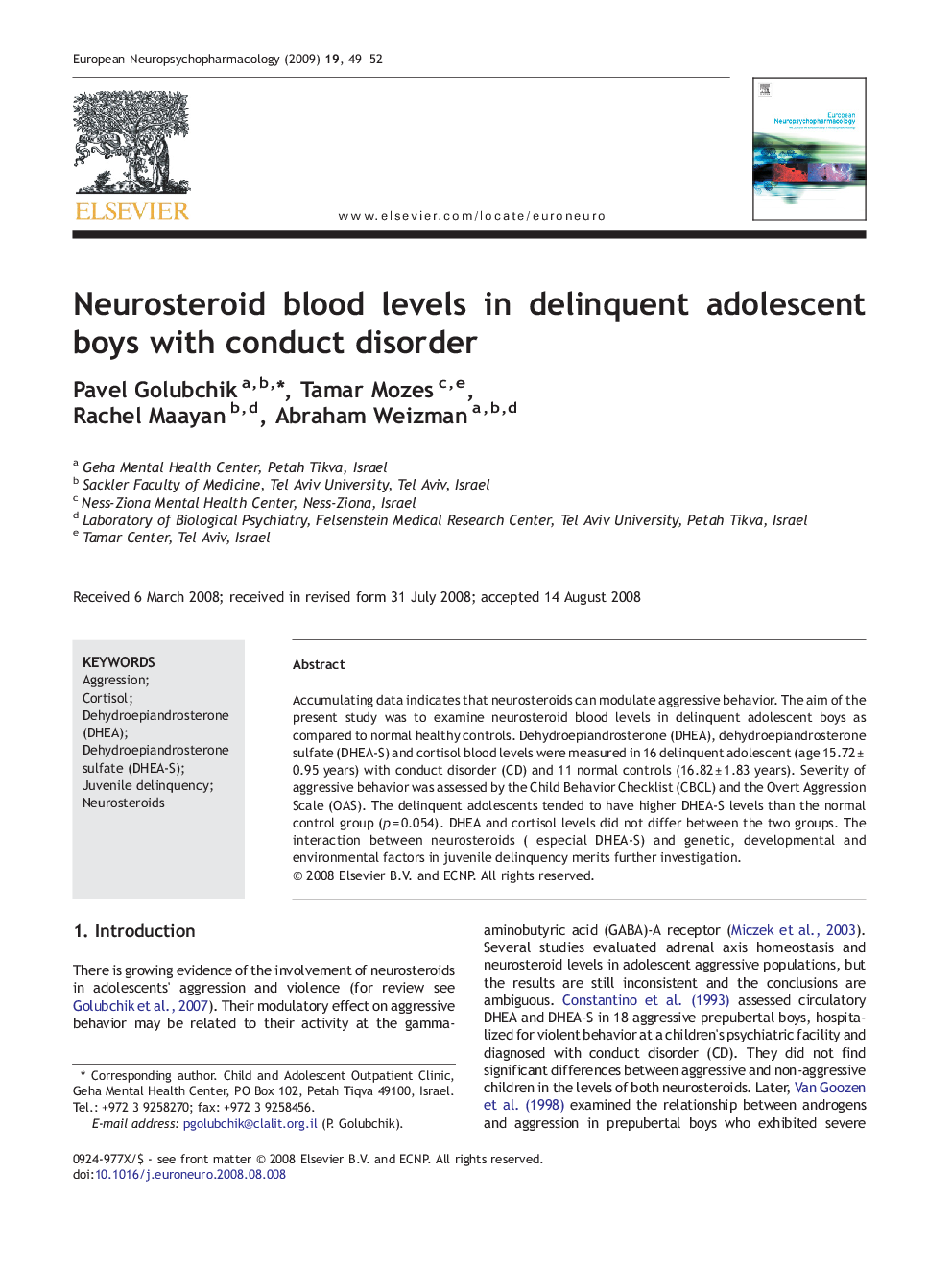| Article ID | Journal | Published Year | Pages | File Type |
|---|---|---|---|---|
| 319884 | European Neuropsychopharmacology | 2009 | 4 Pages |
Accumulating data indicates that neurosteroids can modulate aggressive behavior. The aim of the present study was to examine neurosteroid blood levels in delinquent adolescent boys as compared to normal healthy controls. Dehydroepiandrosterone (DHEA), dehydroepiandrosterone sulfate (DHEA-S) and cortisol blood levels were measured in 16 delinquent adolescent (age 15.72 ± 0.95 years) with conduct disorder (CD) and 11 normal controls (16.82 ± 1.83 years). Severity of aggressive behavior was assessed by the Child Behavior Checklist (CBCL) and the Overt Aggression Scale (OAS). The delinquent adolescents tended to have higher DHEA-S levels than the normal control group (p = 0.054). DHEA and cortisol levels did not differ between the two groups. The interaction between neurosteroids ( especial DHEA-S) and genetic, developmental and environmental factors in juvenile delinquency merits further investigation.
